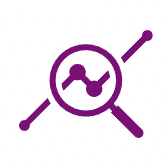I rarely use Google search anymore. I now almost exclusively use OpenAI’s ChatGPT or Bing.com’s Copilot to answer most of my questions.
Years ago, when using the Internet to answer questions, I used search engines like Excite, Yahoo, and the early versions of Google, Bing, and DuckDuckGo. There were also lesser-known search engines like Ask Jeeves that were designed to allow users to get answers to questions in everyday, natural language in addition to traditional keyword searching.
Ultimately, Google became the go-to search engine. People just started saying “Google it”. The term “Google” is often used as a verb in everyday language to mean “search for something on the internet”, regardless of the search engine used. This is like how “Xerox”, “Kleenex”, “Band-Aid”, and “Coke” have been used to refer to any photocopiers, tissues, adhesive bandages, and soda, respectively.
There isn’t a single word that has become synonymous with interacting with AI Large Language Models (LLMs) yet. However, the term “ChatGPT” is ubiquitous when it comes to discussing Artificial Intelligence models like those from OpenAI, Microsoft, Anthropic, and others. While “ChatGPT it!” doesn’t exactly roll off the tongue, unless you’ve been living under a rock pretty much everyone knows what you mean when you refer to the results from ChatGPT.
Google was officially launched in September of 1998. So, after 25-plus years we mastered how to search using these search engines to obtain the best results. Advertisers were all about keywords and page rankings. Search Engine Optimization (SEO) and Search Engine Marketing (SEM) were where companies focus their efforts so that they were on the first page of your Google results.
So, if you weren’t in three or four positions in search results, you might as well not have shown up at all. People just didn’t scroll down or go onto page two and subsequent pages.
Yesterday I decided to establish a development environment on my local machine. It was getting difficult to run my ideal tech stack on the hosting server. Traffic to my website has increased. I’m running are WordPress plugins than before. On going plugin development on a remote server was getting more and more difficult. I was crashing my own machine!
My tech stack isn’t that complicated. I’m running WordPress on Apache with PHP, MySQL, JavaScript, HTML, etc. For development, I’m Visual Studio Code (VS Code) but I want to move to PHPStorm, the IDE and code editor from JetBrains. It provides some of the best code completion, refactoring, and error prevention on the market.
So, instead of trying to shoehorn more dev tools onto my already overloaded server, instead of letting my hosting provider upsell me on the need for dedicated server, I decided to move development off the Virtual Private Server onto my local machine.
Having made that decision I needed to know how to do that. So, I asked ChatGPT for the steps to establish a local host and install WordPress and connect to GitHub and run VS Code all locally. ChatGPT had some very specific steps recommending what server software to run. It recommended XAMPP – which stands for Cross-Platform, Apache, MariaDB (formerly MySQL) and PHP, and Perl.
Within about an hour and one half I had downloaded, installed, and configured a local server and had a WordPress site up and running!
Along the way, I hit several snags. It was simple enough to copy the error messages and pates them into a ChatGPT dialogue, to which ChatGPT responded with some specific things to try to resolve the issues.
If I had had to use Google to answer those questions, I would likely have spent hours looking for the answers and guidance. It’s gotten so easy to use ChatGPT that I’ve almost forgotten how to use Google!
In the vast universe of Artificial Intelligence, the transition from Google to OpenAI’s ChatGPT can be likened to a significant shift in the Force as depicted in the Star Wars saga. It’s like a Jedi Knight choosing to follow a new path, not out of a desire for power or control, but for the pursuit of knowledge and the betterment of the galaxy. The transition creates a ripple in the Force, felt by all companies in the search engine universe. It’s a change, a disturbance, a new alignment of power and potential.
The shift from Google to ChatGPT will undoubtably disrupt ad revenue for companies like Google that rely heavily on targeted advertising. As Internet users shift from traditional search to AI Chatbots, the results could include significant decreases in ad impressions and clicks.
But this also presents opportunities for new and innovative revenue streams. For instance, subscription models for advanced AI features could generate significant revenue streams. Consider if you will OpenAI’s $20 subscription model to access ChatGPT 4, their most up to date (April 2023) and sophisticated model yet.
I’ve finished setting up my new development environment. One of the things that I wanted to include in my dev stack was PHPStorm. I’ve heard that that’s very good. I haven’t started using it yet, but I hope too soon. I’m sure with GitHub’s Copilot and JetBrains’ PHPStorm running on my local host I should have a productivity improvement to accelerate my the development of my Chatbot ChatGPT for WordPress plugin.
#ChatGPT #DigitalTransformation #AIForDevelopment
About the Author
Stephen Howell is a multifaceted expert with a wealth of experience in technology, business management, and development. He is the innovative mind behind the cutting-edge AI powered Kognetiks Chatbot for WordPress plugin. Utilizing the robust capabilities of OpenAI’s API, this conversational chatbot can dramatically enhance your website’s user engagement. Visit Kognetiks Chatbot for WordPress to explore how to elevate your visitors’ experience, and stay connected with his latest advancements and offerings in the WordPress community.



Leave a Reply
You must be logged in to post a comment.